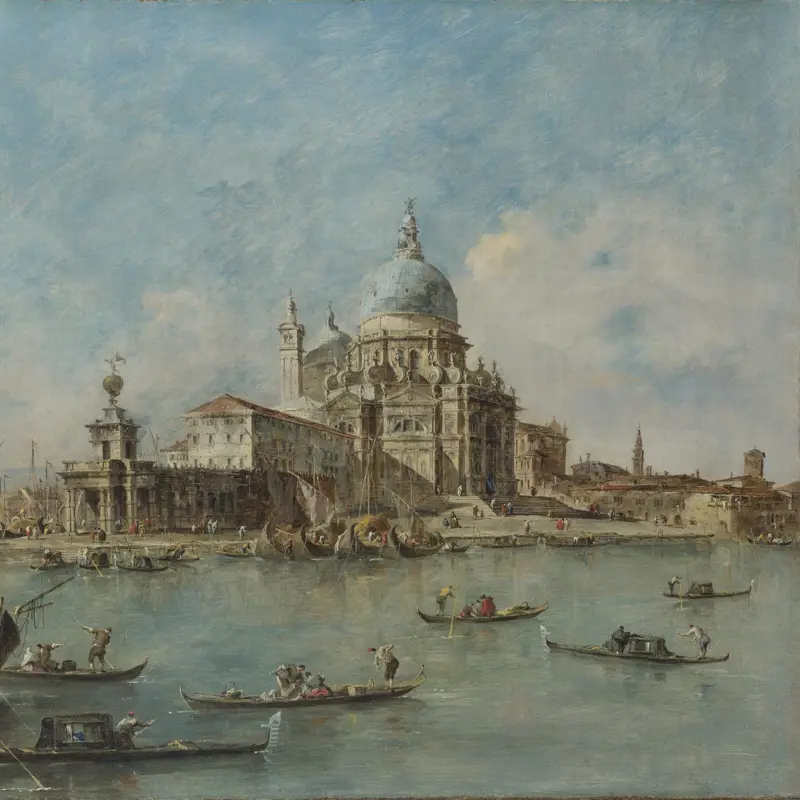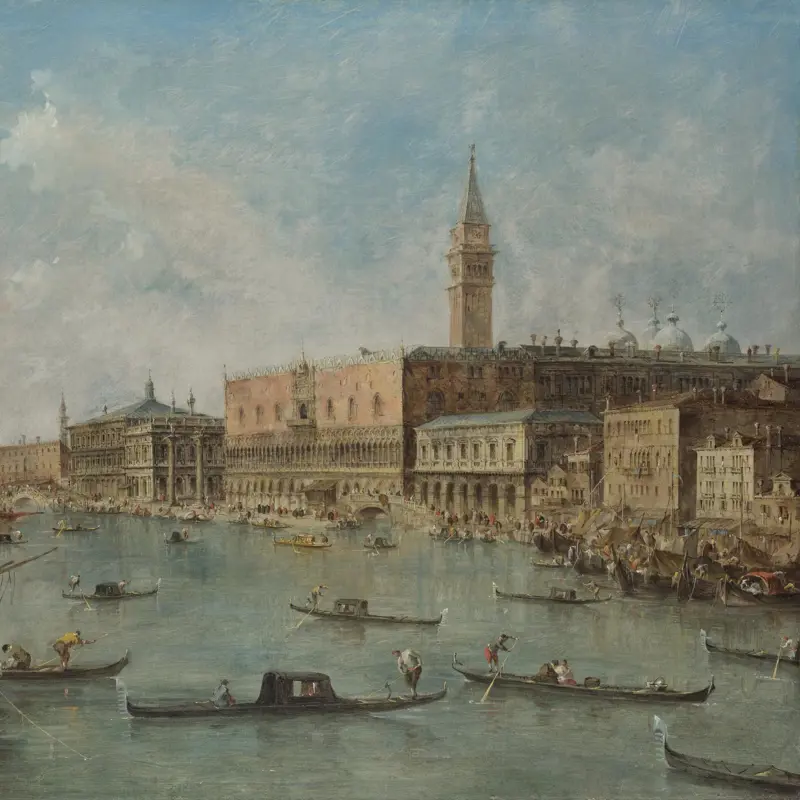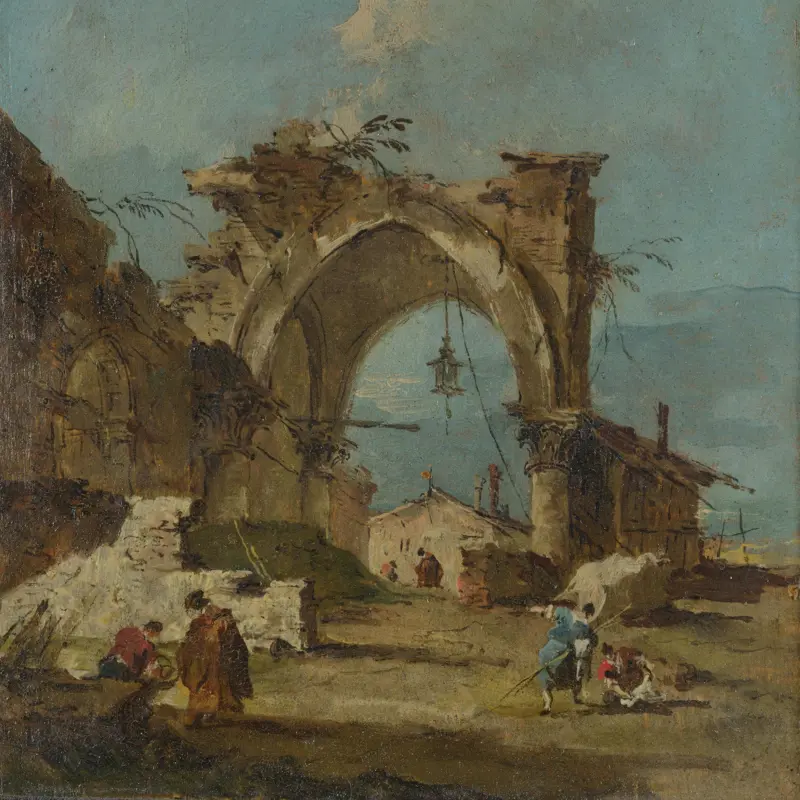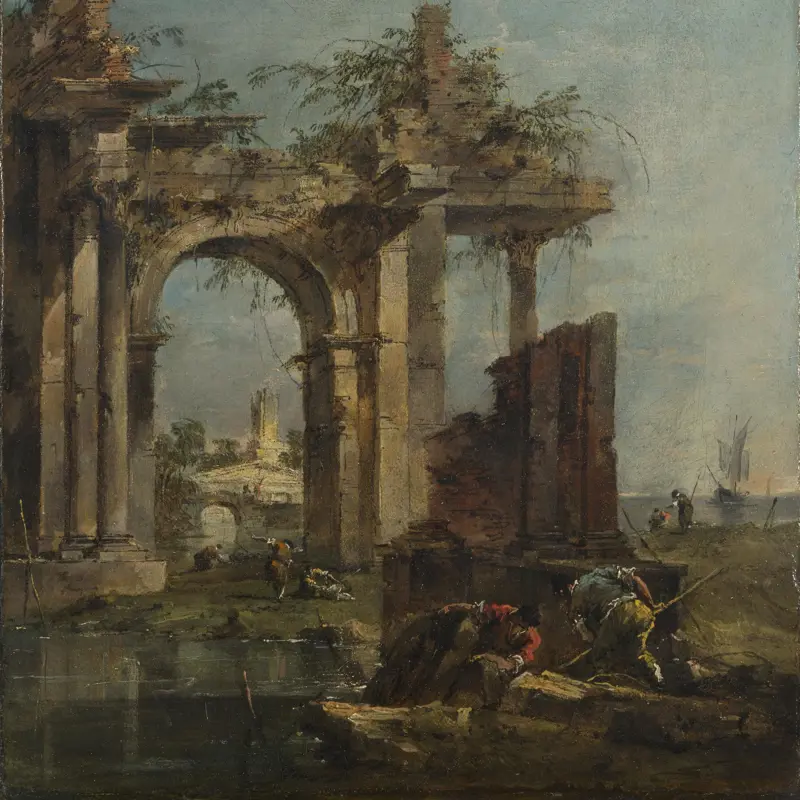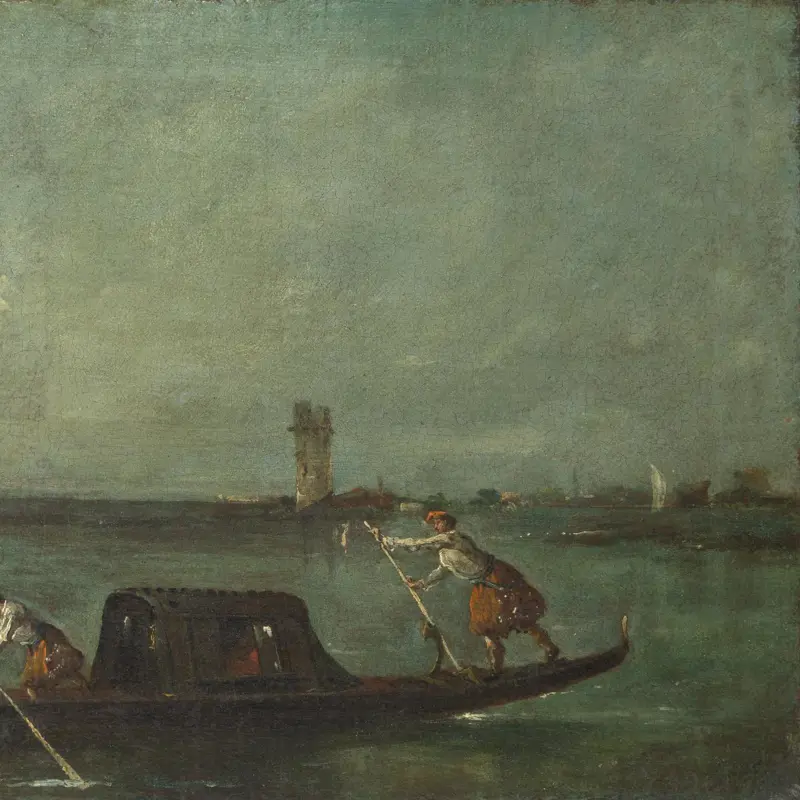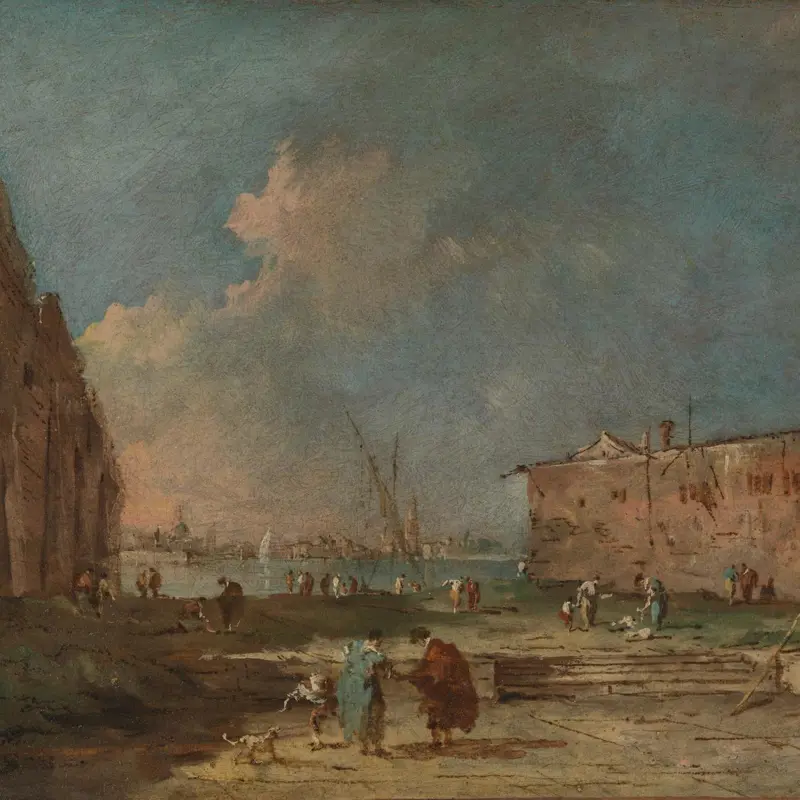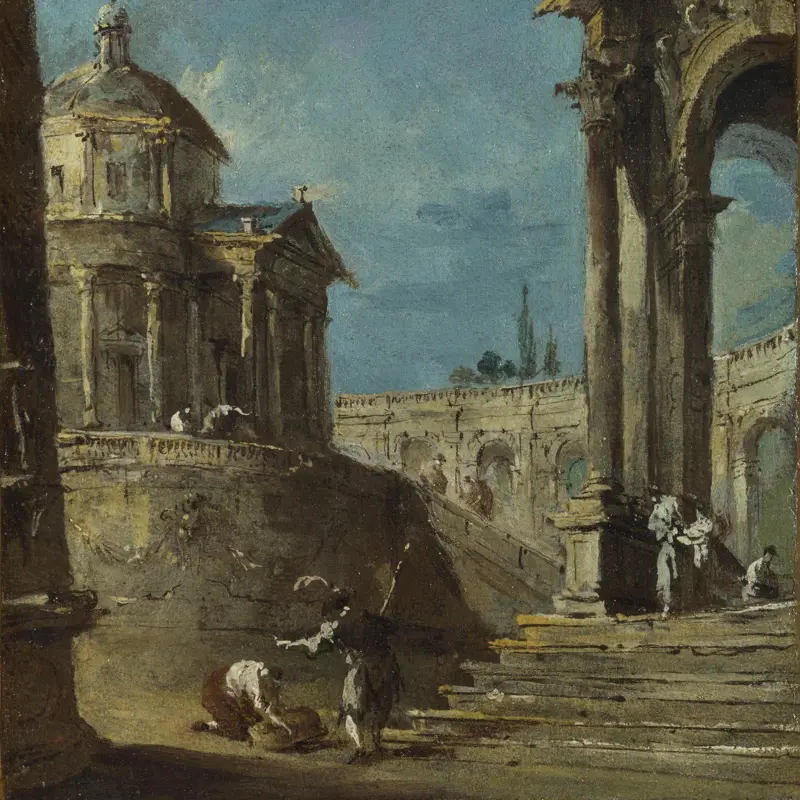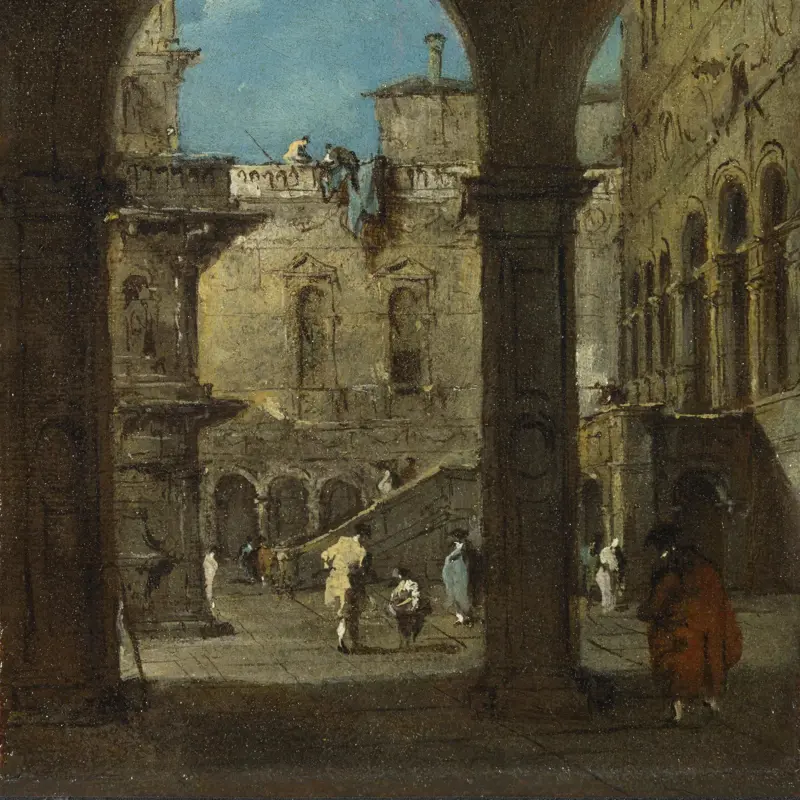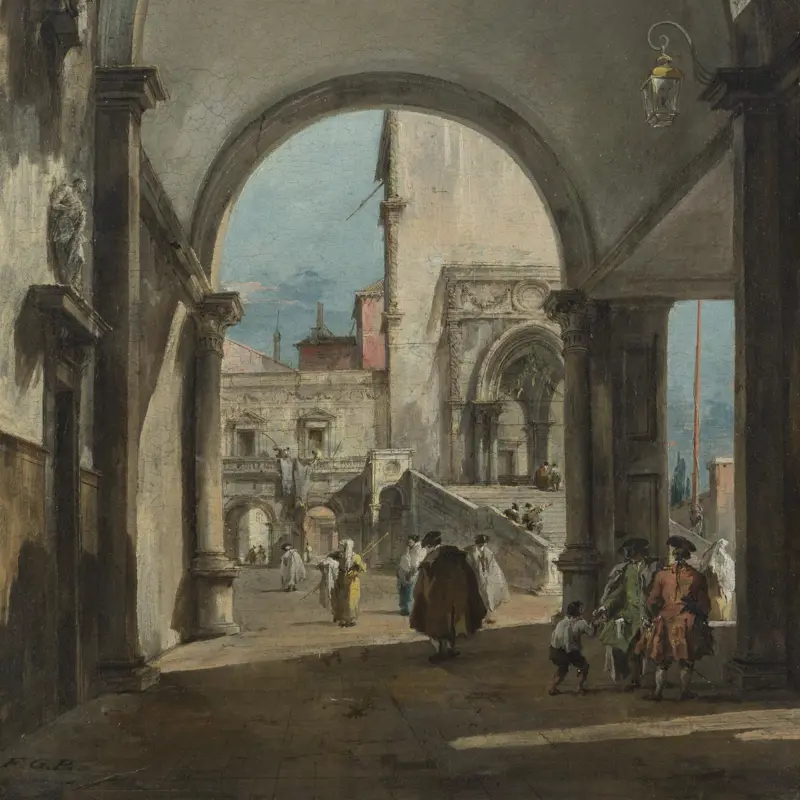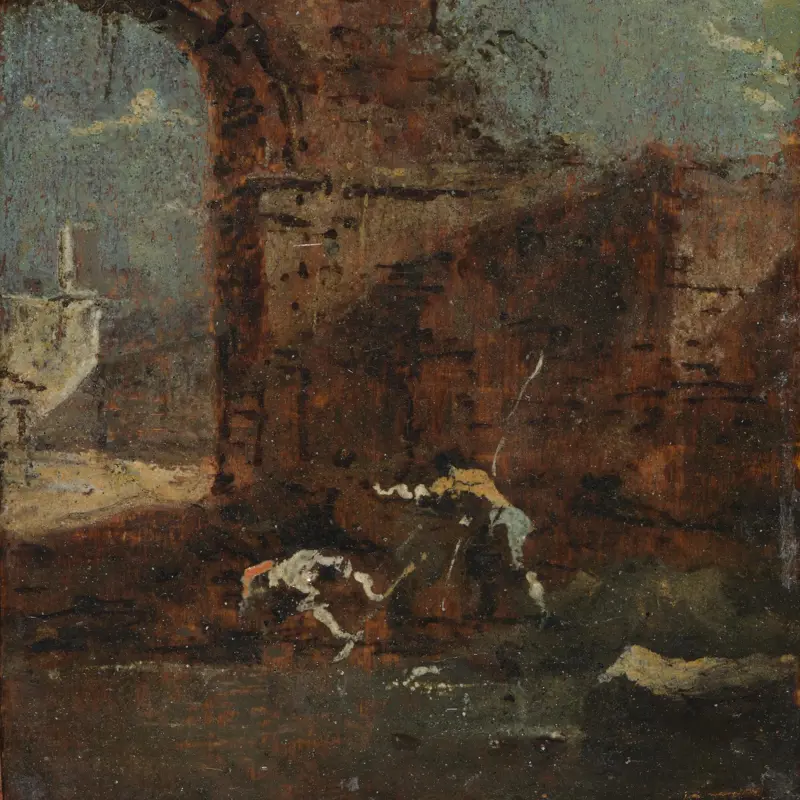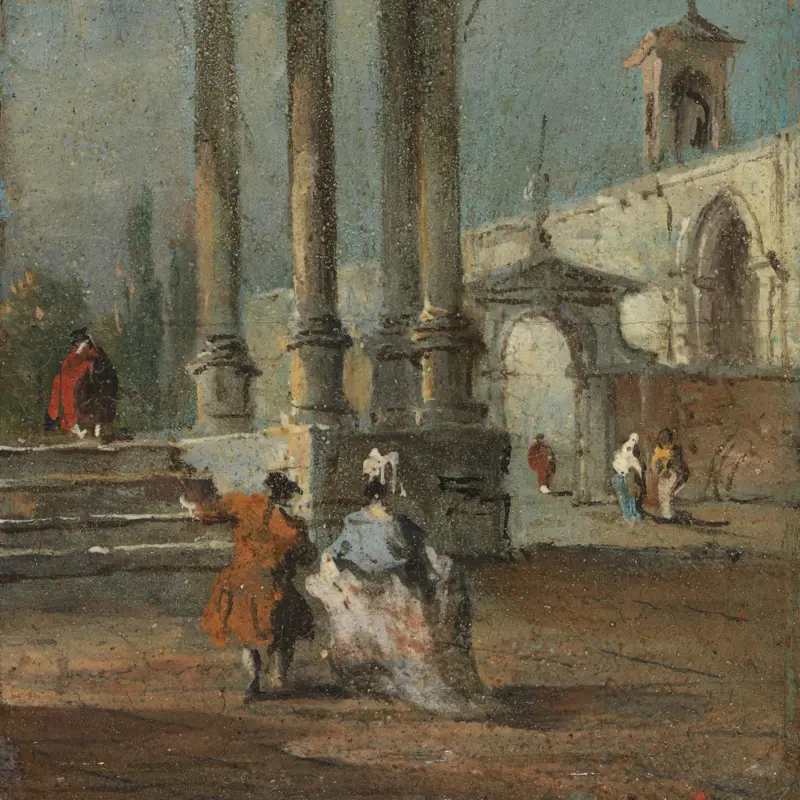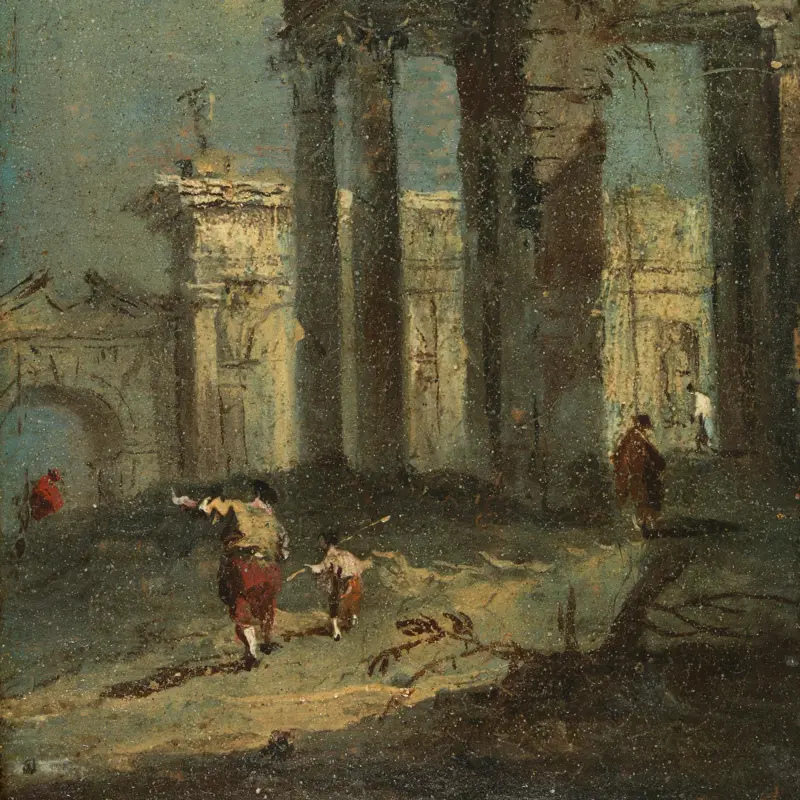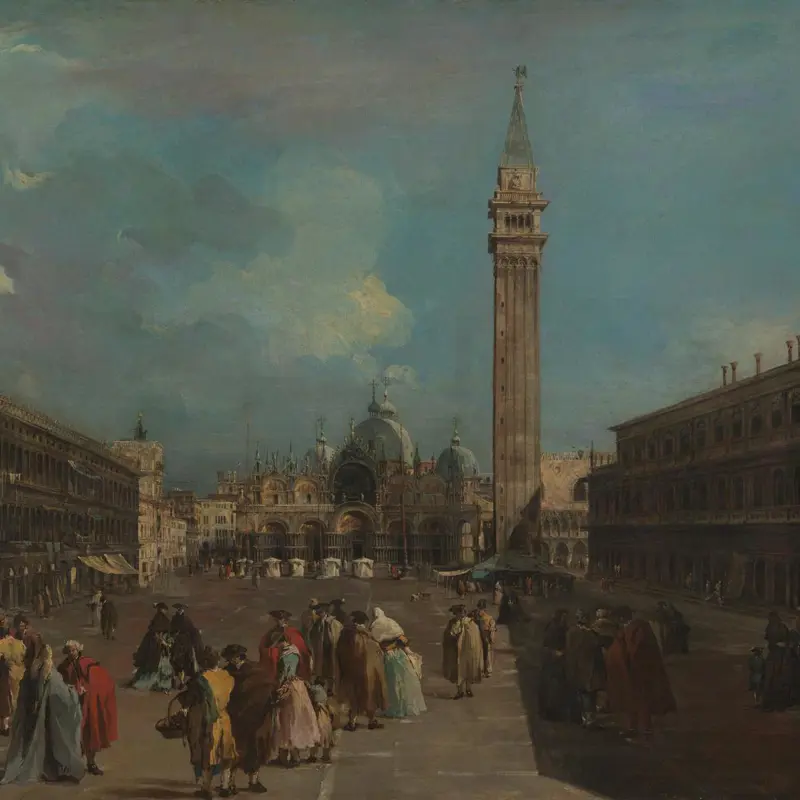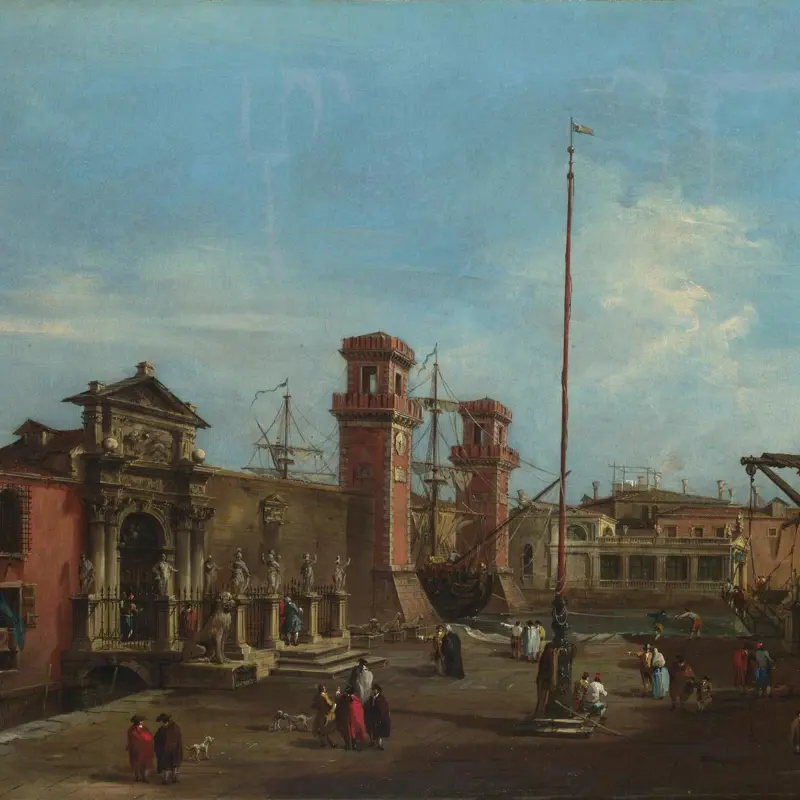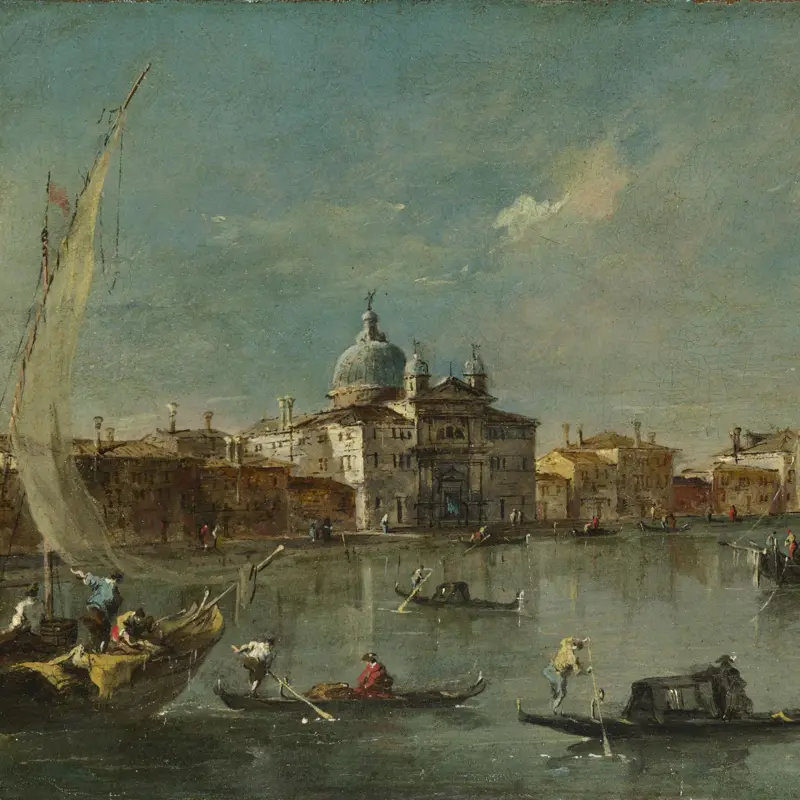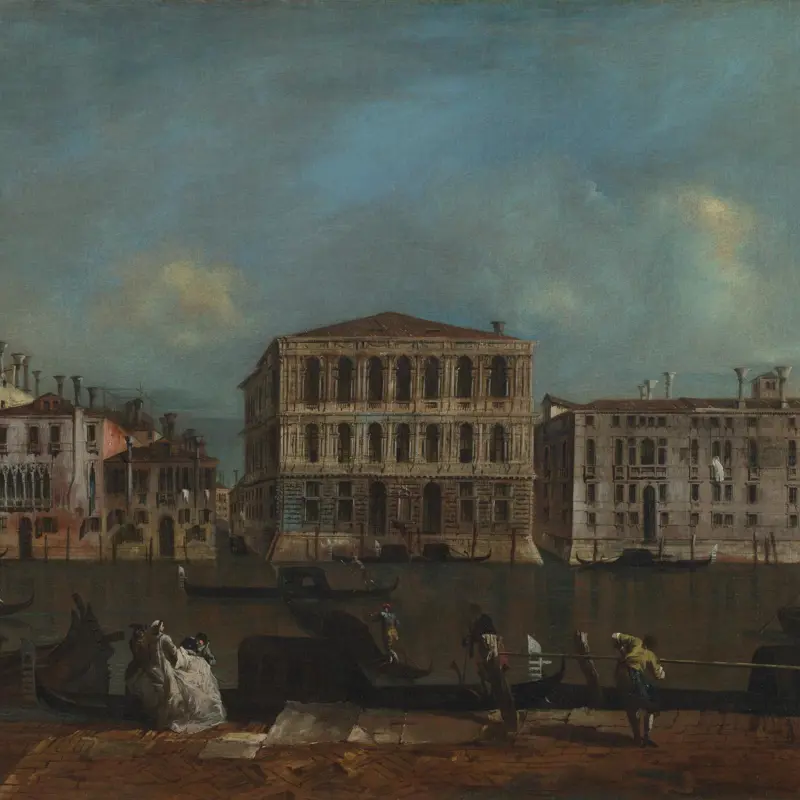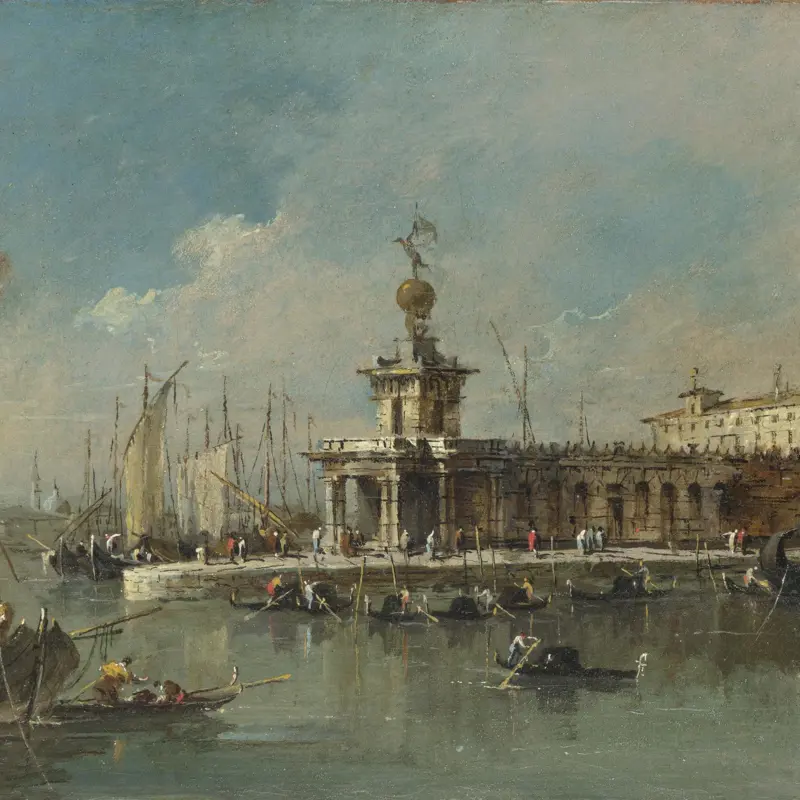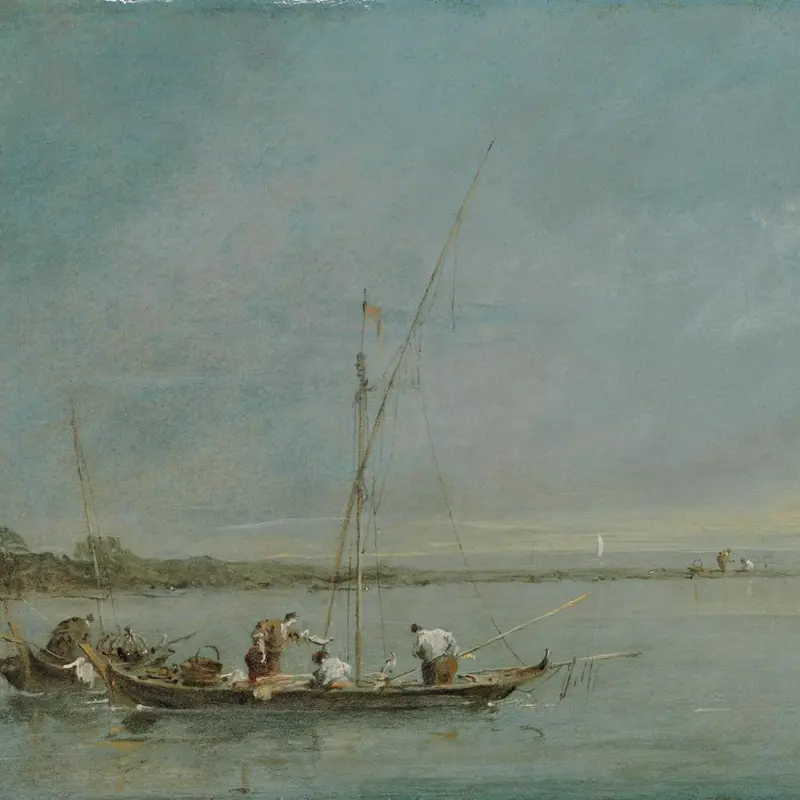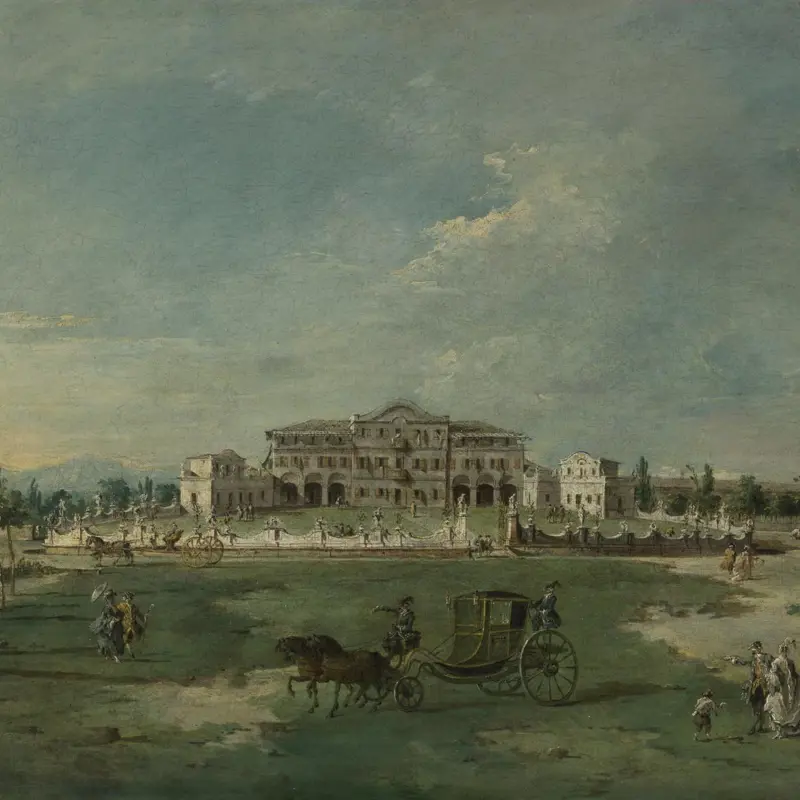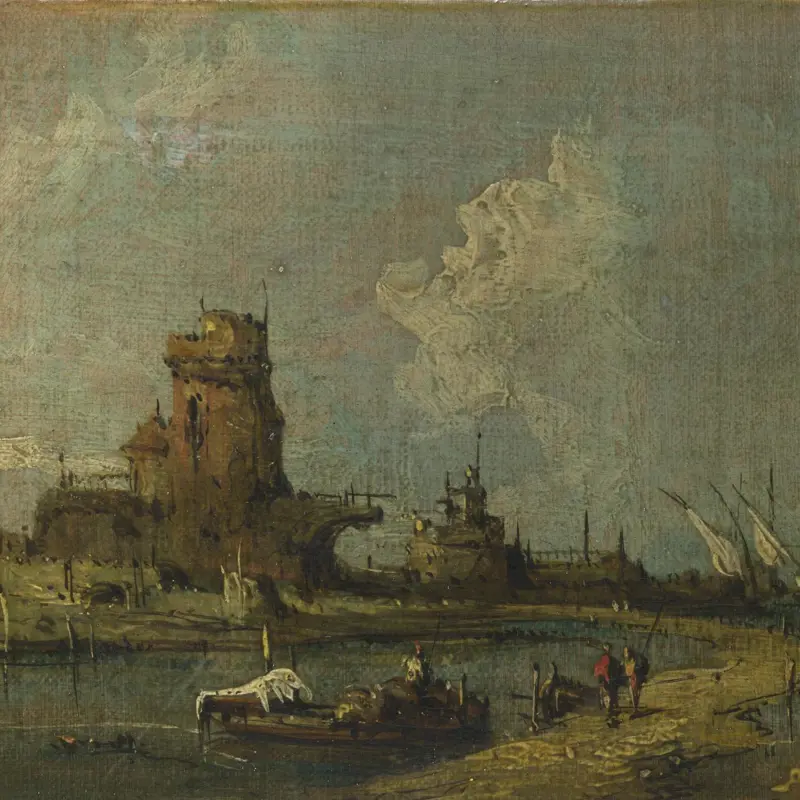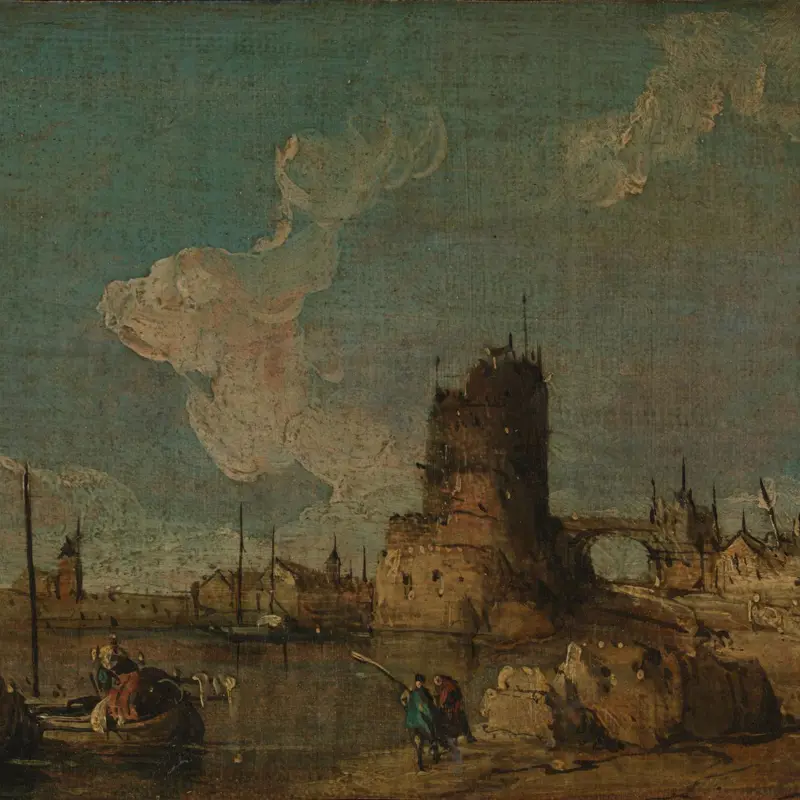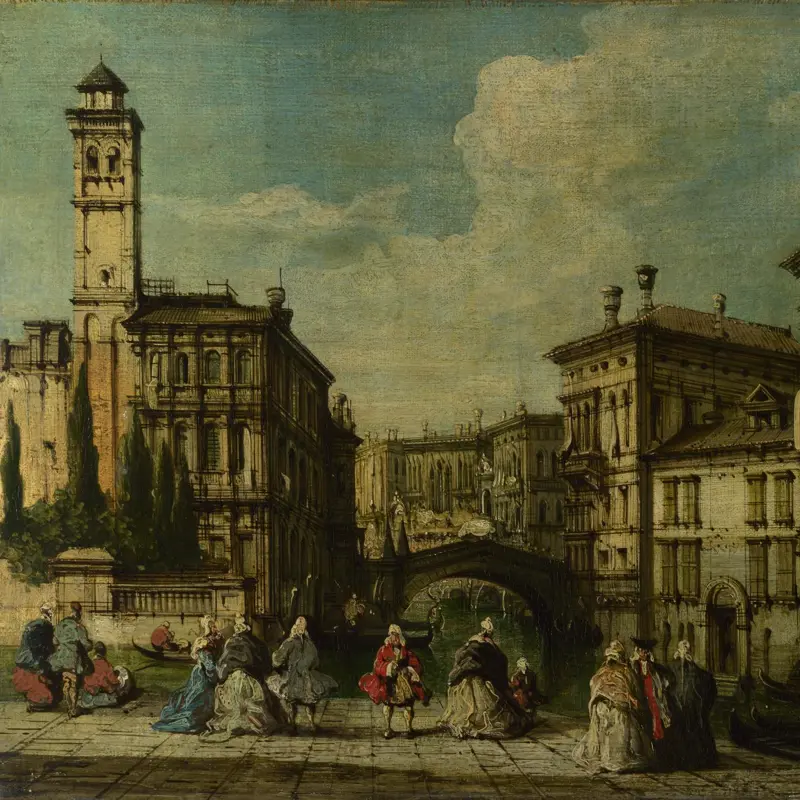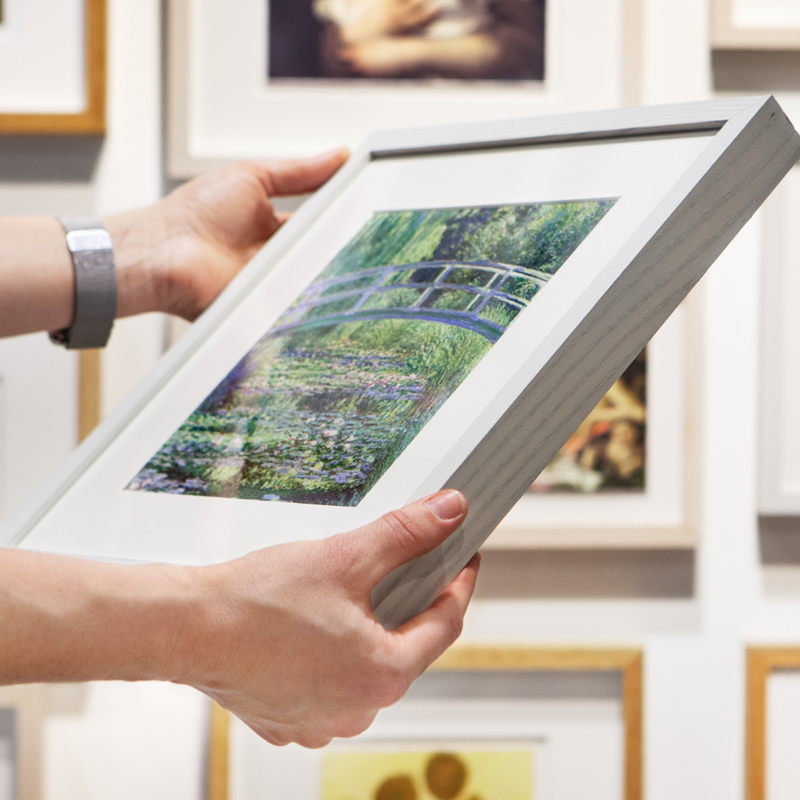Francesco Guardi, 'Venice: The Doge's Palace and the Molo', about 1770
About the work
Overview
Guardi delighted in capturing the charm of his beloved Venice, and here he has given it a soft, powdery appearance and dreamy atmosphere. Trade is the focus in the foreground – the basin of San Marco and the quayside is a hive of activity. Lively brushstrokes evoke the bustle of the city at work, from the movement of boats as they glide across the lagoon to that of the tiny figures dotted along the quayside.
In the left corner, a large barge filled with goods is at anchor; its graceful white sail frames the scene. A group of tightly packed vessels on the far right almost merge with the shops behind; the men are little more than daubs of colour, but Guardi still managed to portray their industriousness. Gondoliers ferry passengers and await clients beside the Molo (a broad stone quay), with the Doge’s Palace and campanile (bell tower) of San Marco beyond.
Key facts
Details
- Full title
- Venice: The Doge's Palace and the Molo from the Basin of San Marco
- Artist
- Francesco Guardi
- Artist dates
- 1712 - 1793
- Part of the series
- Two Views of Venice
- Date made
- about 1770
- Medium and support
- oil on canvas
- Dimensions
- 58.1 × 76.4 cm
- Acquisition credit
- Bequeathed by the Misses Cohen as part of the John Samuel Collection, 1906
- Inventory number
- NG2099
- Location
- Not on display
- Collection
- Main Collection
Provenance
Additional information
Text extracted from the ‘Provenance’ section of the catalogue entry in Michael Levey, ‘National Gallery Catalogues: The Seventeenth and Eighteenth Century Italian Schools’, London 1986; for further information, see the full catalogue entry.
Bibliography
-
1956Levey, Michael, National Gallery Catalogues: The Eighteenth Century Italian Schools, London 1956
-
1986Levey, Michael, National Gallery Catalogues: The Seventeenth and Eighteenth Century Italian Schools, London 1986
-
2001
C. Baker and T. Henry, The National Gallery: Complete Illustrated Catalogue, London 2001
About this record
If you know more about this work or have spotted an error, please contact us. Please note that exhibition histories are listed from 2009 onwards. Bibliographies may not be complete; more comprehensive information is available in the National Gallery Library.
Images
About the series: Two Views of Venice
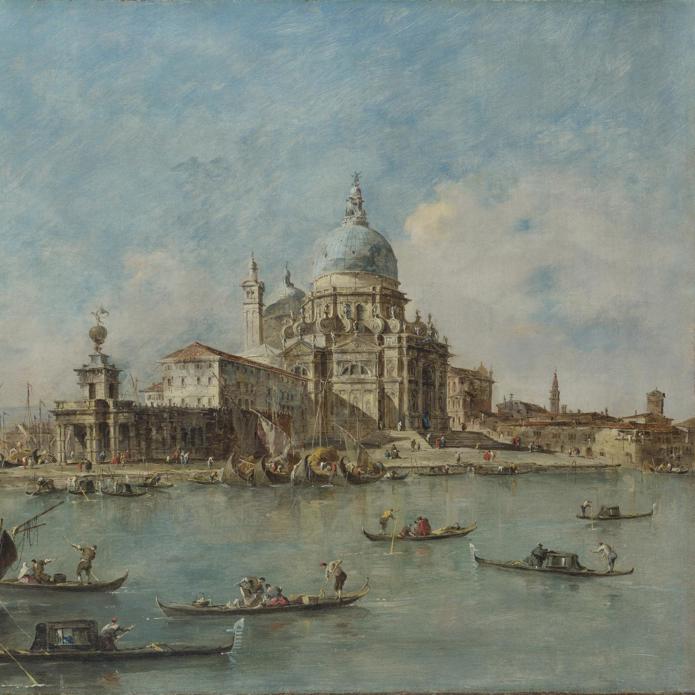
Overview
Venice: The Doge’s Palace and the Molo from the Basin of San Marco and its companion picture Venice: The Punta della Dogana with S. Maria della Salute were intended to be hung together. Paintings like these were a reminder of Venice’s impressive architecture and bustling atmosphere, and fulfilled a taste for poetic views of the city among locals and foreign collectors.
Guardi shows Venice here as a prosperous city, although by the second half of the eighteenth century the Venetian Republic’s control of the Mediterranean sea trade was growing weaker. For centuries its maritime power had been unrivalled, its economic growth achieved by receiving goods from the east by sea and selling them in the growing European market.
By the 1770s, when these paintings were probably made, Guardi had moved away from the influence of the famed Venetian artist Canaletto in terms of technique. He continued to paint similar parts of the city, but with a more free-handed approach and a particular interest in atmospheric effects.

